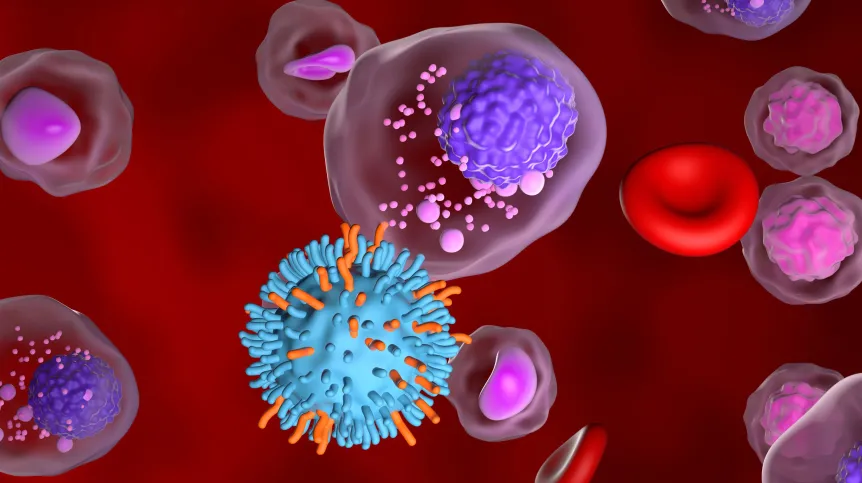
The first CAR-T therapy produced in Poland is being administered to patients with haematological cancers as part of the CARLA clinical trial at medical centres in Warsaw and Gdańsk. The Polish manufacturer hopes that the domestic production of CAR-T will increase the availability of this method for patients.
CAR-T cell technology is the most advanced method of cancer therapy. It is most often used to treat blood cancers derived from B cells, including chronic lymphoblastic leukaemia and lymphomas, as well as multiple myeloma. It allows doctors to treat patients who have not had effective therapeutic options so far. However, the possible applications of CAR-T therapy go beyond haematology and oncology and also concern autoimmune diseases, inflammatory diseases, solid tumours, and HIV.
CAR-T therapy uses the patient's own T cells, which are genetically modified to be able to specifically identify cancer cells. Modified T cells, administered to the patient once, precisely identify and destroy cancer cells in the body.
The entire process requires advanced technology and appropriate manufacturing facilities. So far, such products have only been manufactured outside Poland, which extends the patients' waiting time for therapy.
The Polish biotech company FamiCordTx S.A. was the first in Poland to develop (in cooperation with a foreign partner) a methodology for producing anti-cancer immunotherapy based on CAR-T technology. The technology was implemented at the Pharmaceutical Manufacturing Plant of the Polish Bank of Stem Cells (PBKM), which has permission to manufacture Advanced Therapy Products issued by the Chief Pharmaceutical Inspector. There, the FamiCordTx and PBKM teams manufactured CAR-T products for a clinical trial.
Genetically modified T cells were first administered in July 2023, and have now been administered to four patients with diffuse large B-cell lymphoma (DLBCL). They were administered as part of the CARLA clinical trial conducted at the Medical University of Warsaw and the Medical University of Gdańsk.
'We have been administering CAR-T products in our clinic for two years. This is a huge advance for haematooncology patients. We are pleased to be participating in this pioneering project in Poland', says Professor Grzegorz W. Basak, Head of the Haematology, Transplantology and Internal Medicine Clinic at the CSK UCK WUM.
'Our technology is universal, it can be implemented in various manufacturing plants and used to develop many other products in which the active substance are live T cells subjected to genetic modification. On its basis, we are developing further therapies, including an allogeneic platform, the aim of which is to create CAR products ready for immediate administration to cancer patients. This would be a real breakthrough in this class of therapy', emphasises Dr. Tomasz Kolanowski, Science Director at FamiCordTx.
FamiCordTx also carries out research and development work in the CARinclusive project - an innovative approach to creating CAR-T products from umbilical cord blood, co-financed by the Polish Medical Research Agency. Its expected result will be an increased availability of such therapies for the majority of Polish patients with blood cancers.
'We want to develop therapies that will be the future of cancer treatment, that will be more accessible to patients, and that will allow the company to take a permanent place among the most innovative biotechnology companies in Europe', says Dr. Kolanowski. (PAP)
jjj/ agt/ kap/
tr. RL













